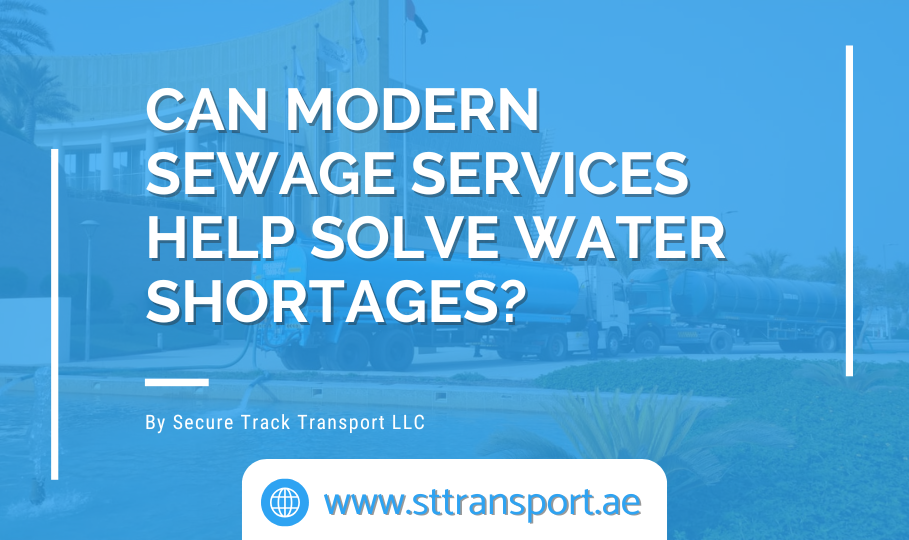When we think about water shortages, sewage systems aren’t exactly the first solution that comes to mind. But in today’s world of cutting-edge technology and environmental challenges, innovative sewage tanker services could be the key to conserving water and ensuring sustainable access to this vital resource. How, you ask? Can Modern Sewage Services Help Solve Water Shortages? Let’s dive into the murky depths of modern sewage management and uncover its potential to turn the tide on water scarcity.
The Growing Problem of Water Shortages
Water may seem abundant—after all, about 70% of Earth’s surface is covered by it. But here’s the catch: only 2.5% of that is freshwater, and an even smaller fraction is accessible for human use. Combine this with population growth, climate change, and pollution, and you’ve got a recipe for a global crisis.
What’s Driving Water Scarcity?
- Population Explosion: More people mean more water demand.
- Climate Change: Unpredictable rainfall and prolonged droughts strain supplies.
- Inefficient Use: Leaks, waste, and outdated infrastructure exacerbate shortages.
The Evolution of Sewage Services
Modern sewage systems are no longer just about flushing waste away. Today, they focus on reclaiming water, extracting nutrients, and even generating energy.
Key Innovations in Sewage Management
- Advanced Treatment Plants: Use technologies like membrane filtration to purify wastewater.
- Energy Recovery Systems: Transform organic waste into biogas, powering communities.
- Decentralized Systems: Smaller, localized units reduce the strain on centralized plants.
How Sewage Services Contribute to Water Conservation
One person’s waste is another’s treasure—or in this case, reusable water. Treated wastewater can be used for agriculture, industrial processes, and even drinking water in some regions. Untreated sewage pollutes rivers, lakes, and oceans, further depleting freshwater reserves. Modern systems prevent this by ensuring waste is treated to safe levels before release.
Treated water can be injected into aquifers, replenishing groundwater supplies—a critical resource during droughts.
Global Examples of Sewage Services Addressing Water Shortages
Singapore’s “NEWater” initiative transforms sewage into high-quality drinking water, meeting up to 40% of the city-state’s needs.
Faced with chronic droughts, California has embraced large-scale wastewater recycling projects to supply irrigation and even household needs.
Cities like Chennai are using decentralized sewage systems to manage water more efficiently and reduce wastage.
Challenges in Implementing Advanced Sewage Solutions
Building and upgrading sewage systems requires significant investment—a hurdle for many developing nations. Let’s face it: drinking water that was once sewage doesn’t sound appealing, even if it’s scientifically safe. Overcoming this stigma is no small feat.
Strict regulations and bureaucratic red tape can slow down the adoption of innovative systems.
Conclusion: Can Modern Sewage Services Help Solve Water Shortages
Modern sewage services are more than just pipes and treatment plants—they’re a lifeline in the fight against water scarcity. By investing in advanced technologies and changing our perspective on waste, we can turn what was once a problem into a solution. It’s time to think beyond the flush and embrace the potential of sewage systems to ensure a water-secure future.
FAQs
1. Is recycled wastewater safe for drinking?
Yes, when treated with advanced technologies, recycled wastewater meets or exceeds drinking water standards.
2. What are some common uses for treated wastewater?
Treated wastewater can be used for irrigation, industrial processes, groundwater recharge, and even as drinking water in some cases.
3. How does sewage management reduce pollution?
Modern sewage systems treat wastewater before releasing it, removing harmful contaminants and protecting natural water bodies.
4. What is the biggest barrier to adopting advanced sewage solutions?
Cost and public perception are two major challenges, along with the need for regulatory support.
5. How can individuals contribute to water conservation?
Simple steps like fixing leaks, using water-efficient appliances, and supporting sustainable practices can make a big difference.



